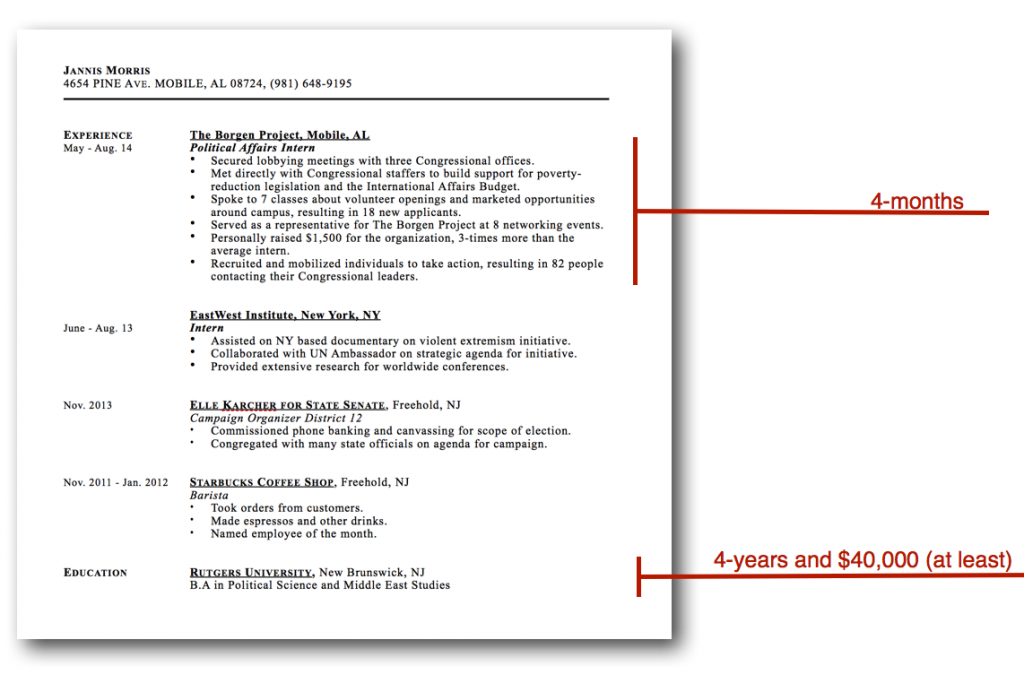Through the years, we’ve had extremely bright and talented interns at The Borgen Project. On occasion, we’ve noticed some of the best academic students—individuals who have the work ethic to spend hours each week studying at the library—don’t necessarily approach their job with the same work ethic. This has baffled us a bit, so we thought we’d give you an employer perspective on how your internship shapes your future.
1. Your Resume: Take a look at your resume or the example below. You’ll notice that the four years and $40,000+ you spend on college takes up a fraction of the space on your resume compared to your brief stint at The Borgen Project. Think of your resume as a ticket to a good job. Your work experience and record of accomplishment at those jobs are what employers notice and will be asking you about in job interviews.

2. Degrees Have Become Check Marks: Don’t get us wrong, college is extremely important. It’s a time to learn and grow as a person. However, it’s no longer the golden ticket to a great job out of college that it once was. For many employers, a college degree is viewed as a check mark. It’s something employers like to see on a resume, but it doesn’t give you any advantage over the dozens of other candidates who also have a degree. What employers really care about is your work experience, what you’ve accomplished at other jobs and what skills you’ll bring to their organization/company if they hire you.
3. GPA’s are for Parents and Grad Schools: You’ll notice that when you interviewed for The Borgen Project, nobody asked you what your GPA was. The reason? We really don’t care. And we’re not alone. Google changed their hiring criteria after their data revealed that GPA’s and degrees were nearly worthless in predicting a successful employee. Outside of grad schools and a handful of jobs, many employers don’t care about GPA’s. This is our way of saying, don’t jeopardize your internship just because of school commitments. We are happy to work with you on a temporary schedule, but would prefer not to find out that you can’t give 100 percent after the fact. Think of your internship as an intensive, one-semester course that is going to have a bigger impact on your marketability to employers than the other semesters of your college life combined.
4. Long-term, Income Multiplier: While internships at most organizations, including The Borgen Project, are unpaid, that doesn’t mean they don’t amplify your lifetime earnings. Unless you have a degree in a field that is in high-demand it is nearly impossible to land a good, entry-level job out of college without relevant work and internship experience. Many of The Borgen Project’s former interns have gone on to work at Microsoft, Google, The Gates Foundation and countless other places with high-paying jobs. In most cases, their internship experience is what landed them the job and set them on a course for much higher lifetime earnings. Whether you want to work for a nonprofit or a business, internship experience increases the likelihood of landing jobs in your 20’s and 30’s that will improve your lifetime earning potential.
As if helping the world’s poor isn’t motivation enough, just keep in mind that your brief stint in The Borgen Project’s Internship Program is laying the groundwork for your career, personal ambitions and long-term success. Internships are like most things in life… what you put in, is what you’ll get out of it. Now go change the world!
